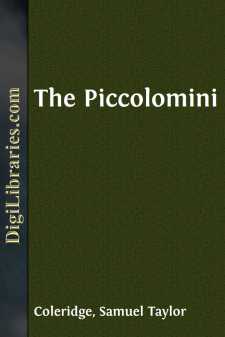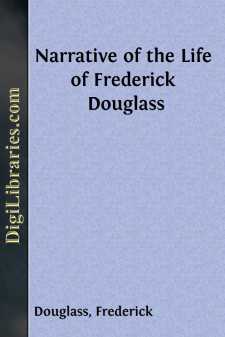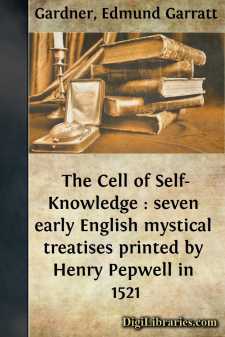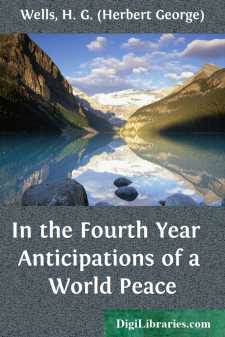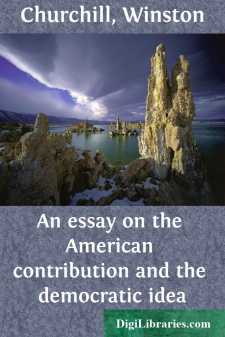History
- Africa 30
- Americas (North Central South West Indies) 50
- Ancient 68
- Asia 58
- Australia & New Zealand 8
- Canada 41
- Caribbean & West Indies 1
- Civilization 20
- Eastern Europe 12
- Europe 310
- Expeditions & Discoveries 60
- General 77
- Historical Geography 1
- Jewish 9
- Latin America 3
- Medieval 8
- Middle East 13
- Military 248
- Revolutionary 8
- Study & Teaching 5
- United States 353
- Western Europe 56
- World 13
History Books
Sort by:
by:
Scott Nearing
I. THE NEW ECONOMIC LIFE 1. The Historic Present The knell of a dying order is tolling. Its keynote is despair. Gaunt hunger pulls at the bell-rope, while dazed humanity listens, bewildered and afraid. Uncertainty and a sense of futility have gripped the world. They are manifesting themselves in unrest, disillusionment, the abandonment of ideals, opportunism, and a tragic concentration on the life of...
more...
PREFACE. The two dramas,—PICCOLOMINI, or the first part of WALLENSTEIN, and the DEATH OF WALLENSTEIN, are introduced in the original manuscript by a prelude in one act, entitled WALLENSTEIN'S CAMP. This is written in rhyme, and in nine-syllable verse, in the same lilting metre (if that expression may be permitted), with the second Eclogue of Spenser's Shepherd's Calendar. This prelude...
more...
by:
Philip Nichols
INTRODUCTORY NOTE Sir Francis Drake, the greatest of the naval adventurers of England of the time of Elizabeth, was born in Devonshire about 1540. He went to sea early, was sailing to the Spanish Main by 1565, and commanded a ship under Hawkins in an expedition that was overwhelmed by the Spaniards in 1567. In order to recompense himself for the loss suffered in this disaster, he equipped the...
more...
PREFACE In the month of August, 1841, I attended an anti-slavery convention in Nantucket, at which it was my happiness to become acquainted with FREDERICK DOUGLASS, the writer of the following Narrative. He was a stranger to nearly every member of that body; but, having recently made his escape from the southern prison-house of bondage, and feeling his curiosity excited to ascertain the principles and...
more...
FROM the end of the thirteenth to the beginning of the fifteenth century may be called the golden age of mystical literature in the vernacular. In Germany, we find Mechthild of Magdeburg (d. 1277), Meister Eckhart (d. 1327), Johannes Tauler (d. 1361), and Heinrich Suso (d. 1365); in Flanders, Jan Ruysbroek (d. 1381); in Italy, Dante Alighieri himself (d. 1321), Jacopone da Todi (d. 1306), St. Catherine...
more...
I THE WAY TO CONCRETE REALIZATION More and more frequently does one hear this phrase, The League of Nations, used to express the outline idea of the new world that will come out of the war. There can be no doubt that the phrase has taken hold of the imaginations of great multitudes of people: it is one of those creative phrases that may alter the whole destiny of mankind. But as yet it is still a very...
more...
I THE WORLD TRAGEDY We are living under the shadow of the greatest world tragedy in the history of mankind. Not even the overthrow of the old Roman empire was so colossal a disaster as this. Inevitably we are bewildered by it. Utterly unanticipated, at least in its world extent, for we had believed mankind too far advanced for such a chaos of brute force to recur, it overwhelms our vision. Man had been...
more...
by:
Grammaticus Saxo
LIFE OF SAXO. Of Saxo little is known but what he himself indicates, though much doubtful supposition has gathered round his name. That he was born a Dane his whole language implies; it is full of a glow of aggressive patriotism. He also often praises the Zealanders at the expense of other Danes, and Zealand as the centre of Denmark; but that is the whole contemporary evidence for the statement that he...
more...
I. Failure to recognize that the American, is at heart an idealist is to lack understanding of our national character. Two of our greatest interpreters proclaimed it, Emerson and William James. In a recent address at the Paris Sorbonne on "American Idealism," M. Firmin Roz observed that a people is rarely justly estimated by its contemporaries. The French, he says, have been celebrated chiefly...
more...
District Clerk's Office. (L. S.)Be it remembered, that on the sixth day of March, A. D. 1816, and in the fortieth year of the Independence of the United States of America, Rowe & Hooper, of the said District have deposited in this Office, the title of a book, the right whereof they claim as Proprietors, in the words following, to wit: "A Journal of a Young Man of Massachusetts, late a...
more...



